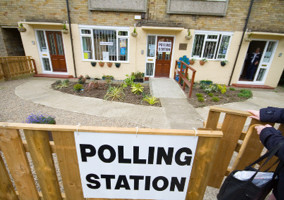The tone of the Charity Commission’s recent email to trustees is unhelpful and risks discouraging some organisations from participating in the debates during the general election campaign, sector bodies have said.
Earlier this week the regulator contacted trustees to remind them to follow campaigning rules during the election, warning that if they did not it could damage public trust in the sector.
In its email to trustees, the regulator said: “The Commission is aware that the political context for this election is very different from that which people may have experienced in the past, which makes it all the more important that trustees read both our guidance on campaigning and political activity and the particular guidance that applies during an election. We've also published lessons learned during the last election in 2017.
“It is legitimate and healthy for charities to speak up for the causes they serve. But appearing to take a political position on either side could risk undermining public confidence in charity as something special, an issue which our chief executive made clear in her recent blog.”
But Bond, ACEVO and the Directory of Social Change have criticised the tone of the email.
‘Could further deter charities from involvement in debates’
Claire Godfrey, interim director of policy, advocacy and research at Bond, the umbrella body for international development charities, said: “The tone of today’s official issue from the Charity Commission to charities could be seen as a further deterrent for civil society organisations to become involved in public debate.
“Many civil society organisations will continue to campaign despite the restrictions, but some have become increasingly cautious when it comes to raising their voice. Sheila McKechnie Foundations research shows the Lobbying Act has had a 'chilling effect' on civil society organisations activity at the 2015 General Election. What today’s email demonstrates is that nothing has changed since then.”
‘Trustees should think about the risk of staying silent’
Jay Kennedy, director of policy and research at DSC, said it was “just nonsense” to think about charities appearing political.
“This issue is whether a charity is actually engaging in party political activity in its actions or statements – for example by endorsing particular parties, candidates, or positions/platforms (which isn’t allowed), or in some cases where the charity’s policy agenda is clearly too closely aligned to just one party, or they’ve obviously not been engaging a broad spectrum of politicians,” he said.
“Obviously trustees need to understand and abide by the rules and not be party-political. But in terms of ‘risk’, trustees should be thinking equally or more about the risk of not speaking up for what their beneficiaries and causes need – regardless of ‘public opinion’ or what the Commission leadership thinks.”
‘Stick to promoting guidance’
Meanwhile, ACEVO emphasised that campaigning rules are the same as in 2017 and said it is unnecessary for the regulator to focus on public trust.
Kristiana Wrixon, head of policy at ACEVO said: “It is important that the Charity Commission signposts people to their guidance on campaigning during a general election, many other organisations, including ACEVO have also done this.
“However, it is also important for the Charity Commission to stick clearly to promoting guidance rather than opinion. Hazy statements about the political context being ‘very different’ to what we have experienced in the past, and references to public trust are unnecessary.
“While we are living in a period of political turbulence, the rules around this general election are no different to 2017.”
'Our email was clear'
Sarah Atkinson, director of policy, planning and communications at the Charity Commission, said: “Our short, straightforward email to charities was clear – that it is legitimate and healthy for charities to speak out on behalf of their beneficiaries and in advancement of their purpose, but that there are rules that they need to be aware of.
“Our email is intended to draw important guidance and case examples to trustees as we know they want to get it right. This kind of debate is unlikely to help that and I wouldn’t want it to distract from ensuring charities have the information they need.”
|
Related articles












